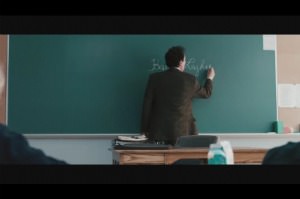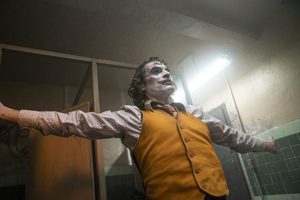‘Monsieur Lazhar’: Tragedy and Humanity
At its best, "Monsieur Lazhar" is something very rare in film: a study in self-containment.
At a middle school in snowy Montreal, a popular teacher commits suicide by hanging herself in her classroom. Her act naturally traumatizes the children. There is obviously a great deal of healing to do, as quickly as possible.
But tragedy contains, for some at least, opportunity. Enter Monsieur Lazhar (played in the film of the same name by an Algerian-French actor who goes by the one-word name Fellag). He hears of the incident and presents himself at the school as a substitute teacher. One must say that his credentials are, rather improbably, not particularly well vetted (he claims to have taught many years in Algeria). But he is an ingratiating man — well spoken, clearly intelligent and agreeable. He is hired and proves to be an effective teacher, popular with his class and the rest of the faculty.
Outside of school, he keeps rather to himself — and for good reason. His wife and two children have been murdered by terrorists in Algeria, and he is applying for permanent residency in Canada. If it is denied him, he faces deportation to his native land, which implies all sorts of unpleasant things — jail, torture, probably death. His calm in these circumstances is almost preternatural.
What saves him is his work in the classroom. He is a demanding teacher, asking more of his students than has previously been required. But he is also good humored. And he cannot help but be drawn into the lives of his pupils. That’s particularly true of Alice (Sophie Nélisse) and her best friend Simon (Émilien Néron). He is the kid who discovered the body, with a traumatic effect on him that requires a long time for him to fully admit. She is a radically lonely child, being raised by a single mom who is an airline pilot and very often absent from home because of professional demands. Alice is more or less coping, but she is also very touching in her stoicism. It is possible that Lazhar crosses a (completely nonsexual) line in his relationship with her. The school has a non-violable policy that prevents, let’s say, hugging, even though that is the only possible human response to certain situations. Lazhar will eventually pay a price for his humanity — though not an entirely dire one.
Writer-director Philippe Falardeau’s film contains, when you stop to think about it, a good deal of melodrama, starting with that suicide and proceeding through Lazhar’s relationships with school authorities, parents and fractious students. But these issues are presented in a tamped-down, rather metaphorical way. It is, seemingly at least, the arrangement of the seats in the classroom, the difficulties of studying Balzac (who may be a bit beyond the kids), the choice of a play to see on an outing. But these minor events contain, of course, larger triumphs and even potential tragedies, as do such issues as arise in Lazhar’s personal life.
I very much appreciate the patience with which Falardeau explores all these matters. At its best, “Monsieur Lazhar” is something very rare in film: a study in self-containment. And I love the performance of Fellag in the leading role, resisting the implicit pull of melodrama, keeping things in some sort of wry perspective. He is, I think, an ironist, but never in a showy way. “Monsieur Lazhar” is a modest venture (though it was nominated for an Academy Award for best foreign language film), but it has a rewarding richness of detail and a way of avoiding the traps of inconsequence that are absorbing and salutary. It is larger in its meanings, in its attention to felt life, than it at first appears to be. You need to find it. And quietly revel in it.
Your support matters…Independent journalism is under threat and overshadowed by heavily funded mainstream media.
You can help level the playing field. Become a member.
Your tax-deductible contribution keeps us digging beneath the headlines to give you thought-provoking, investigative reporting and analysis that unearths what's really happening- without compromise.
Give today to support our courageous, independent journalists.






You need to be a supporter to comment.
There are currently no responses to this article.
Be the first to respond.